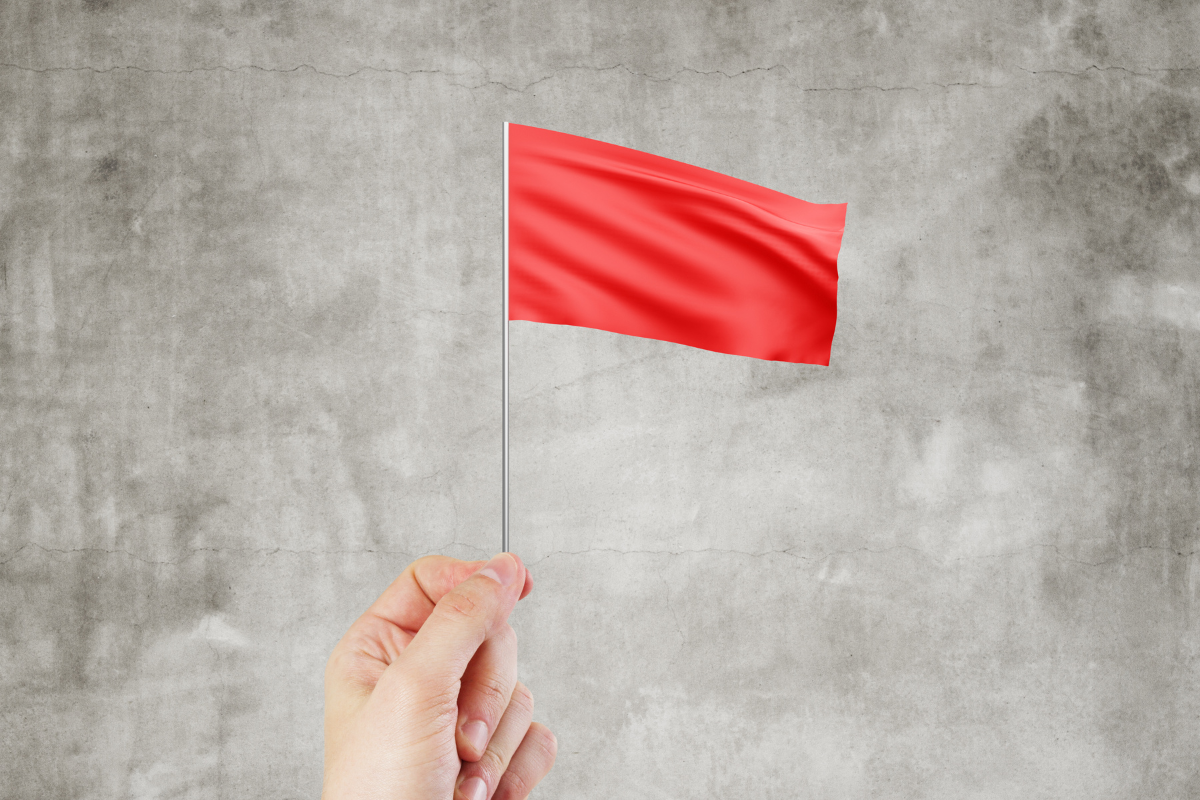In Singapore, financial challenges can arise without warning. Whether it is paying for a medical emergency, home renovation, education fees, or urgent bills, many Singaporeans turn to a personal loan Singapore to manage unexpected expenses. Borrowing money can offer temporary relief, but it also comes with risks especially when the lender is not operating within the law.
Unfortunately, some individuals fall prey to illegal lenders who disguise themselves as legitimate operators. These unlicensed lenders, often called loan sharks, use deceptive tactics, false promises, and even threats to trap borrowers in a cycle of debt. The difference between a licensed and unlicensed lender might seem subtle at first glance, but the consequences of choosing the wrong one can be severe.
This article will help you understand the difference between a licensed money lender Singapore and an illegal lender. It will also outline seven important red flags to watch out for, along with practical advice on what to do if you ever encounter or unknowingly borrow from a loan shark.
What Is a Licensed Money Lender in Singapore?
A licensed money lender Singapore operates under the approval of the Ministry of Law (MinLaw). These lenders must follow the rules set out in the Moneylenders Act and the Moneylenders Rules, which are designed to protect borrowers from exploitation.
Every licensed lender is registered with the Ministry of Law’s Registry of Moneylenders, a public directory that allows you to verify whether a business is operating legally. This registry is available on the official MinLaw website, and it provides a list of approved lenders along with their licence numbers, business addresses, and contact details.
Licensed lenders are required to:
- Clearly display their licence number in all advertisements and official documents.
- Provide written loan contracts that include all terms and repayment details.
- Charge interest rates and fees within the legal limits set by MinLaw.
- Explain the total cost of borrowing before you sign any agreement.
- Treat borrowers fairly and professionally.
By contrast, unlicensed moneylenders operate outside the law. They do not follow any government regulations, and they often take advantage of vulnerable individuals through intimidation, harassment, and unfair practices.
To understand more about safe lending practices and budgeting habits, check out From Zero to Hero – How to Build Your Savings from Scratch in Singapore.
The Dangers of Unlicensed Moneylenders
Borrowing from an unlicensed lender can have long-lasting and damaging effects. Loan sharks often lure people with promises of instant approval, no paperwork, or “no questions asked” loans. While this might seem appealing to someone in urgent need of funds, it is a dangerous trap.
Illegal lenders typically charge sky-high interest rates that can multiply rapidly. They may also add hidden fees or penalties that make repayment impossible. When borrowers struggle to repay, these lenders resort to threats, harassment, and even violence to collect money.
Moreover, dealing with unlicensed lenders can also lead to legal trouble. Under Singapore law, it is an offence to borrow from or assist an unlicensed moneylender. Even if you are the victim, you might still face investigation, and your case will have to be assessed by the authorities.
Recognising the warning signs early can help you protect yourself and your loved ones. Here are seven major red flags to watch out for when identifying illegal lenders in Singapore.
1. No Valid Licence
The first and most important sign of an illegal lender is the absence of a valid licence. Legitimate lenders in Singapore must be registered under the Ministry of Law’s official list of approved money lender Singapore businesses.
Always verify the lender’s details on the official Registry of Moneylenders before you sign anything. If the name or contact information does not match what is listed, walk away immediately.
You can also review additional insights in What Are the Things You Need to Look for When Taking a Loan, which provides useful guidelines on how to identify legitimate financial services.
2. Aggressive Advertising
Licensed lenders are restricted in how they can advertise their services. According to the Moneylenders Rules, they can only promote their services through business websites, physical premises, and official listings.
If you receive unsolicited messages through WhatsApp, SMS, or social media claiming to offer fast loans or guaranteed approval, it is likely a scam. Loan sharks often use these methods to lure unsuspecting borrowers. They may even impersonate legitimate businesses by copying their names and logos.
A genuine money lender Singapore will never ask you to transfer money upfront, click on suspicious links, or share personal details over text or social media.
You can also learn how to protect yourself against misleading advertisements from How to Find the Best Business Loan in Singapore.
3. No Physical Office or Registered Address
Every licensed moneylender must operate from an approved business location. If the lender insists on meeting in a coffee shop, your home, or any unregistered space, this is a definite red flag.
Unlicensed lenders often avoid having a physical office because it makes them harder to trace. They rely on online communication or door-to-door visits to attract clients. Before you proceed with any loan application, make sure the lender’s office address matches the one listed on the official MinLaw registry.
For more advice on how to evaluate financial institutions, refer to Why Select Crawfort as Your Reliable Money Lender.
4. Unclear or Verbal Agreements
A reputable money lender Singapore will always provide a written loan contract that clearly outlines all terms and conditions. This includes the total loan amount, repayment schedule, interest rate, and all associated fees.
Unlicensed lenders, on the other hand, often rely on verbal agreements or vague promises. They might tell you that the contract will come later, or that paperwork is unnecessary. Never hand over your personal documents or accept funds without a signed agreement. Without written proof, you have no legal protection if the lender changes the terms or demands more money later.
You can explore tips for improving your chances of smooth loan approval in Two Tips in Getting Fast Approval on Your Loan.
5. Excessive Interest Rates and Hidden Fees
The Ministry of Law strictly regulates how much a licensed money lender Singapore can charge. The current cap for interest rates is 4 percent per month, and late payment fees cannot exceed 60 dollars per month.
Illegal lenders, however, disregard these rules. They may charge excessive interest sometimes as high as 20 percent per week and hide additional charges in the fine print. Many borrowers only realise the extent of the problem after they have already received the money and are forced into unmanageable repayments.
Always compare loan offers from several licensed lenders and use online calculators to estimate your repayment schedule. If an offer seems too good to be true or the lender refuses to disclose fees in writing, it is likely a scam.
To understand how hidden costs can affect your finances, read The Specific Terms of the Lending Including the APR and All Hidden Fees.
6. Harassment and Threats
Licensed moneylenders are required by law to collect debts in a lawful and respectful manner. They may send written reminders or follow up through official communication channels, but they are not allowed to intimidate, threaten, or shame borrowers.
Loan sharks, however, are infamous for harassment. They may send abusive messages, call you repeatedly, or even vandalise your home. Some might contact your family members or colleagues to pressure you into paying.
If you experience any of these behaviours, report the incident immediately to the Police or the National Crime Prevention Council (NCPC). You can also contact the Registry of Moneylenders for assistance.
Borrowers can also benefit from reading How Delaying a Loan Could Derail Your Dreams, which offers guidance on responsible repayment and timing.
7. Requests for Upfront Payments or Personal Data
A legitimate money lender Singapore will never ask for an upfront payment before approving a loan. Any request for “processing fees,” “security deposits,” or “first instalments” before the loan agreement is signed is a major red flag.
Additionally, be cautious if a lender asks for sensitive personal data, such as Singpass login details or bank passwords. Licensed lenders only require standard identification and income documents to assess your eligibility. Sharing private information with unverified sources can lead to identity theft or unauthorised transactions.
You can read more about managing your finances safely with Petrol Credit Cards in Singapore for Fuel Discounts to understand responsible use of credit facilities.
What To Do If You Have Borrowed from an Unlicensed Lender
If you have already borrowed from an illegal lender, it is important to take immediate action. While it can be frightening, there are official support channels available in Singapore to help you handle the situation safely.
- Stop making payments to the unlicensed lender. Continuing to pay only fuels their illegal operations.
- Keep all records of communication, including messages, call logs, or payment receipts. These can serve as evidence.
- Report the lender to the Police or the Registry of Moneylenders. You can do this anonymously if you fear retaliation.
- Seek assistance from credit counselling agencies, such as Credit Counselling Singapore (CCS), to explore safer financial options.
- Inform your bank if you suspect that your account or personal data has been compromised.
Borrowers seeking to rebuild credit can explore Three Ways to Successfully Apply Online for a Personal Loan.
Remember, even if you made the mistake of borrowing from an unlicensed source, the law prioritises your safety and encourages you to come forward. Authorities will take measures to investigate and protect victims of loan shark harassment.
How to Borrow Safely in Singapore
If you need to take out a personal loan Singapore, always follow these safety measures:
- Check the official Registry of Moneylenders before applying.
- Compare rates and repayment terms from multiple licensed lenders.
- Avoid clicking on advertisements that seem suspicious or overly aggressive.
- Read and understand your loan contract before signing.
- Borrow only what you can realistically repay.
For further financial tips, see From Zero to Hero – How to Build Your Savings from Scratch in Singapore for smart saving habits that can reduce reliance on loans.
Conclusion

Financial challenges are a normal part of life, and taking a personal loan Singapore can be a practical solution when managed responsibly. However, it is vital to ensure that you borrow only from a licensed money lender Singapore recognised by the Ministry of Law.
Unlicensed moneylenders, or loan sharks, may promise fast cash and easy approval, but they bring danger, fear, and long-term debt. By recognising the red flags such as the absence of a valid licence, verbal agreements, hidden charges, and harassment you can protect yourself from exploitation.
Always verify your lender, read your contract carefully, and seek guidance from legitimate financial institutions or counsellors if you are unsure. Borrowing safely means borrowing smartly, and with the right precautions, you can secure the funds you need without falling into the traps of illegal lending.
For more practical insights, read How Delaying a Loan Could Derail Your Dreams to ensure you make timely financial decisions that work for your future.


